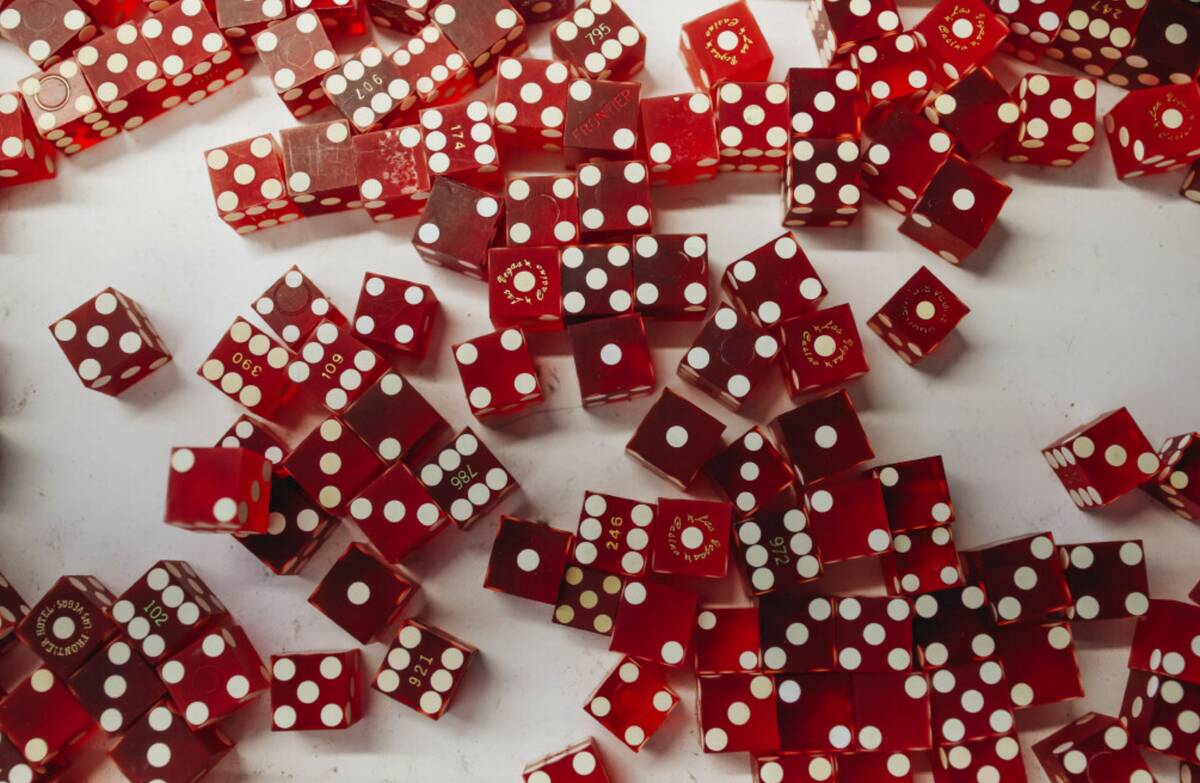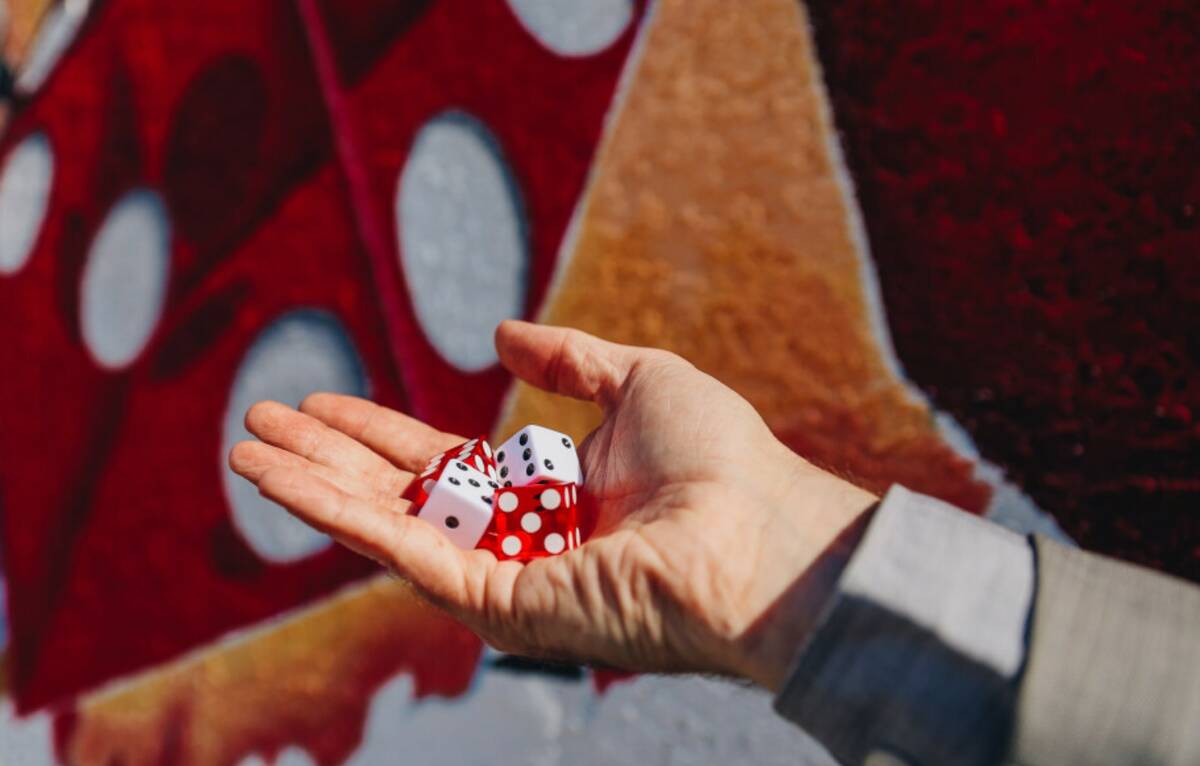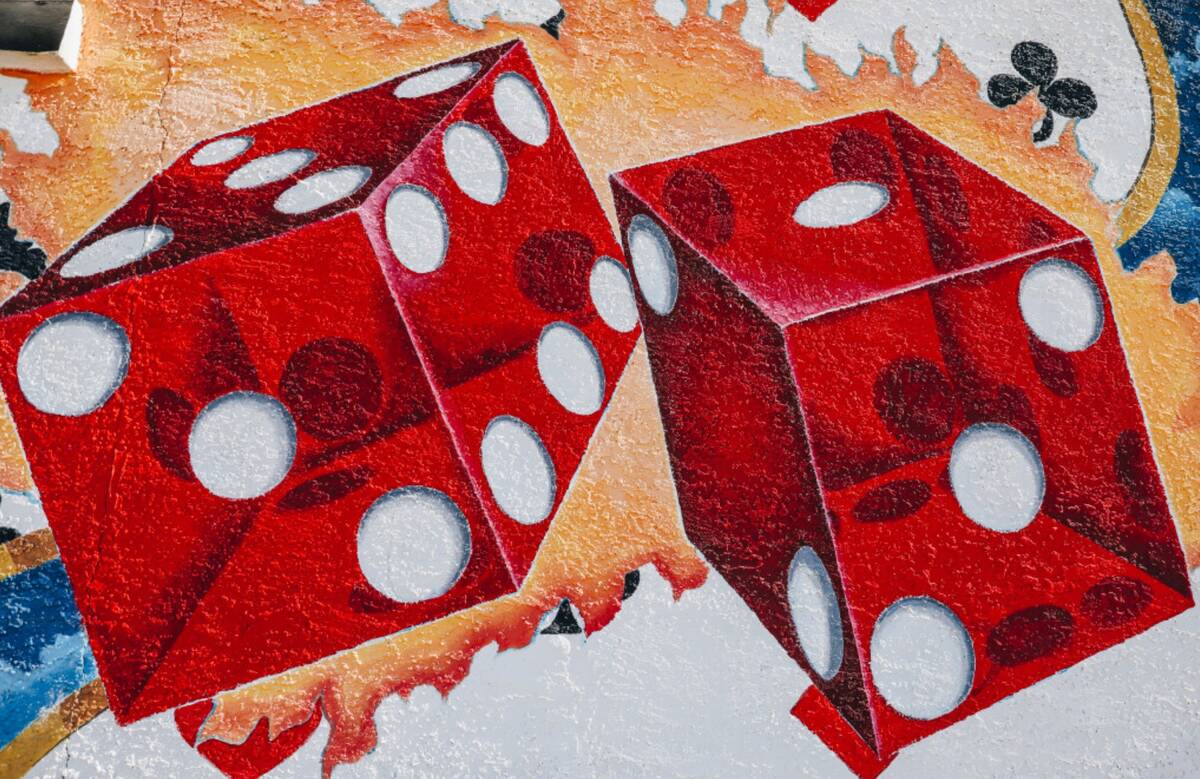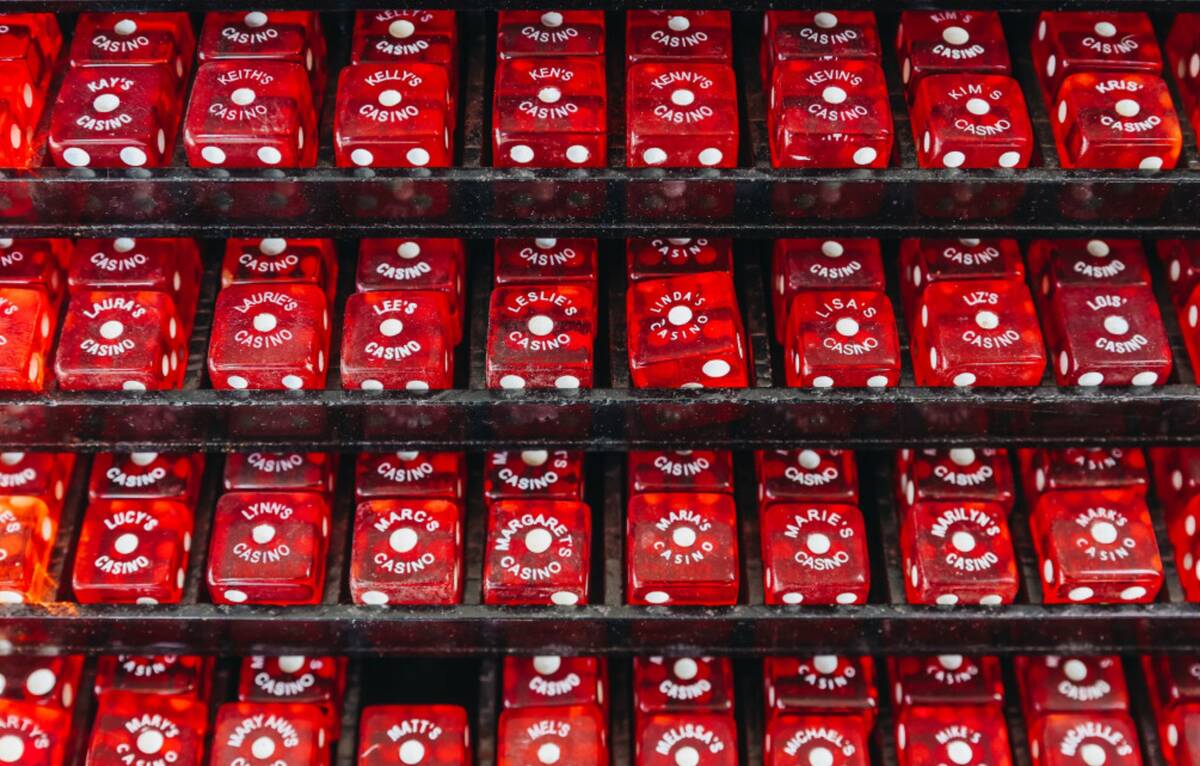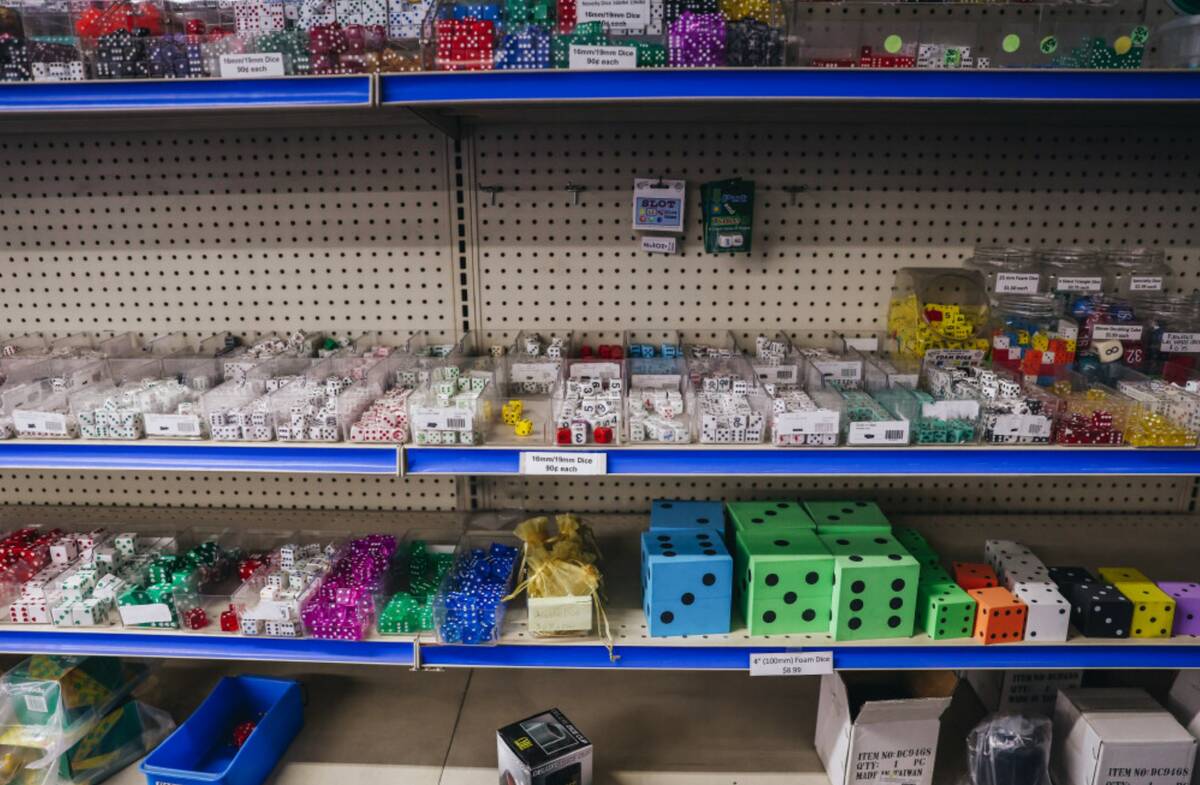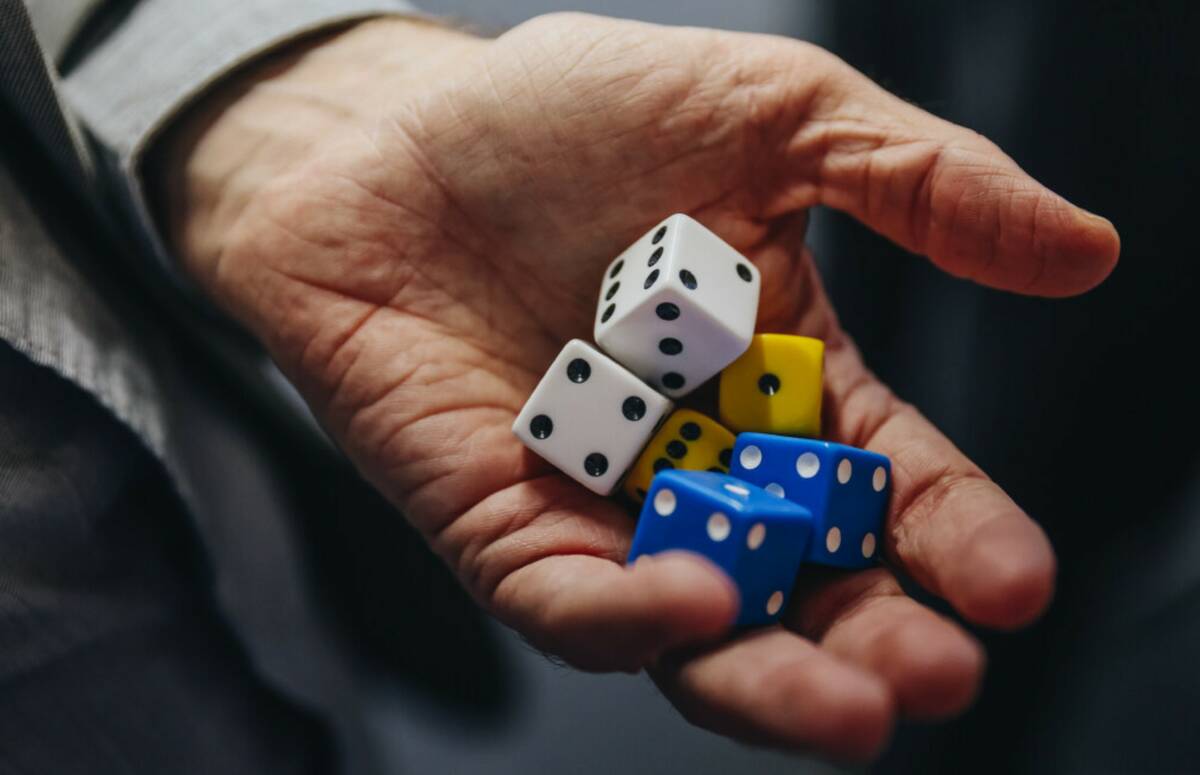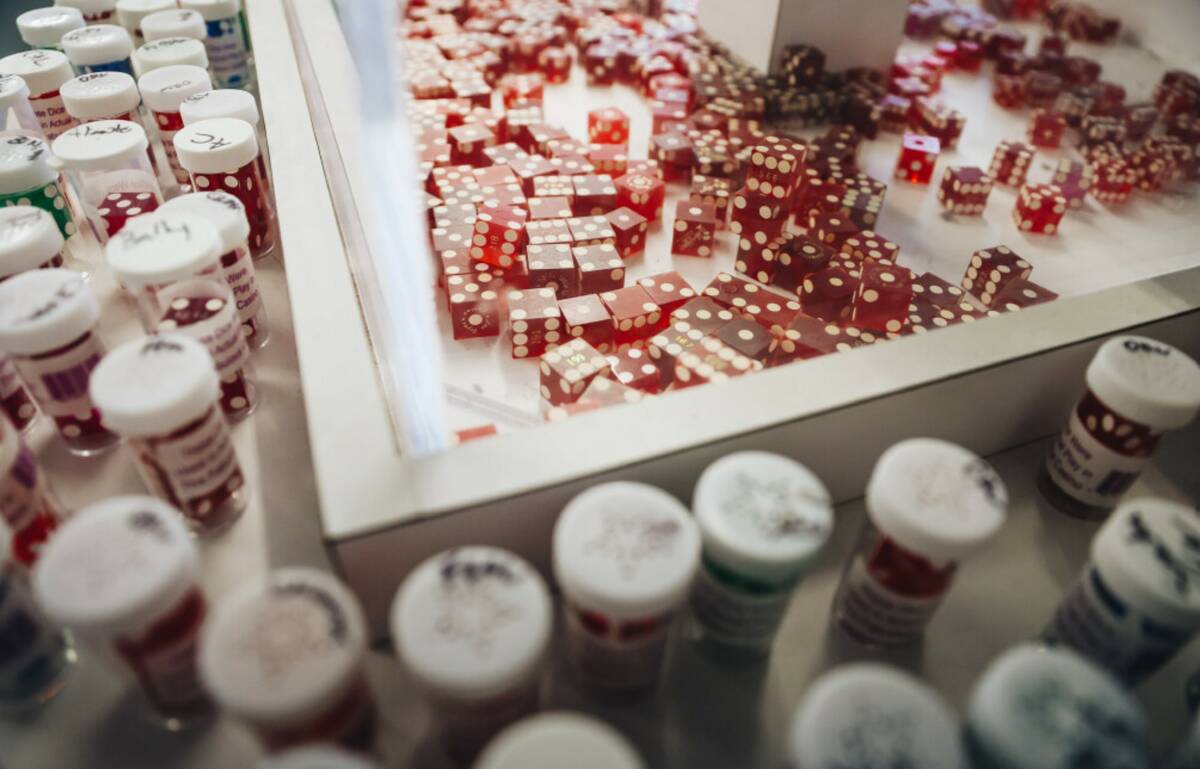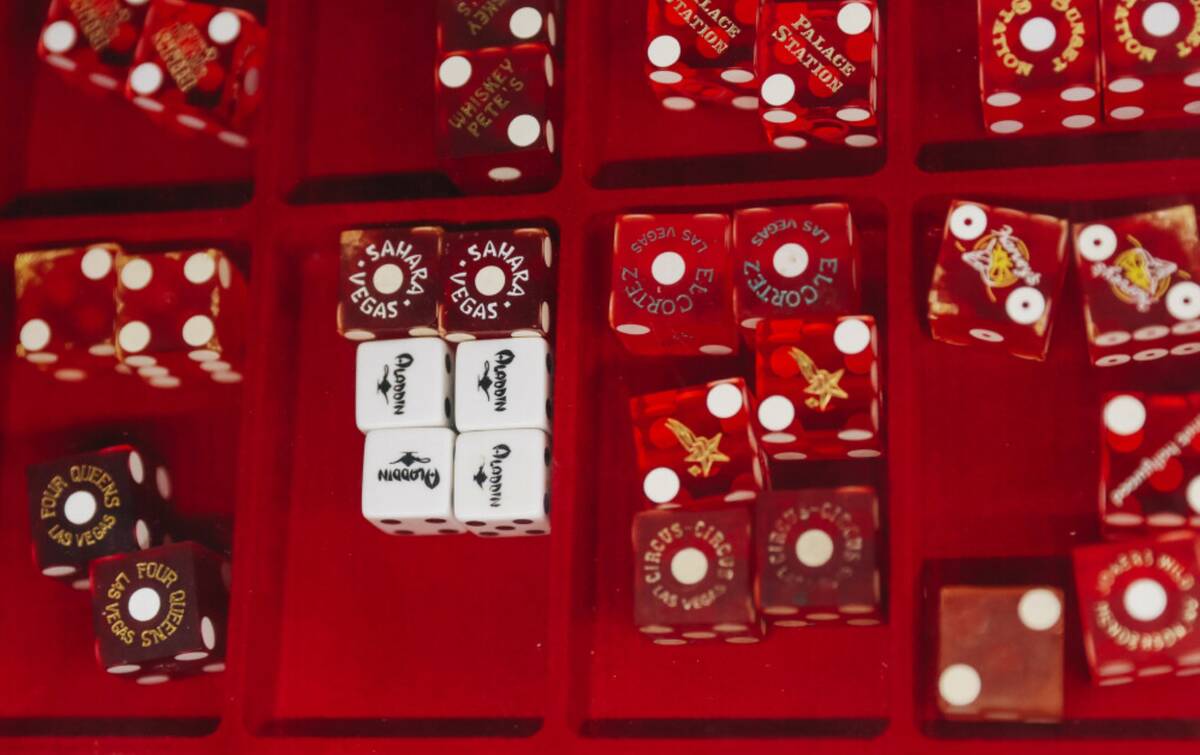‘It’s majestic’: Casino dice is unlike other dice
Sharp. Translucent. Balanced.
With its precision edges and even weight distribution, the dice used in a casino is not the same as board game dice, which has rounded edges, less than exact specifications and surfaces you can’t see through.
Casino dice, or in this context, the dice used in craps, essentially has one job: to protect the house.
And to do that, particulars have to be adhered to so that the dice is as random as possible and the math that governs the odds that favor the casino works.
“The goal of the dice is to be perfect and random so the casino can engage the law of large numbers,” said Scott Morrow, a 40-year-plus gaming industry veteran who started out as a dealer and rose to become an executive.
Morrow, now an industry consultant and gaming lecturer at UNLV’s William F. Harrah College of Hospitality, explained what goes into ensuring this randomness.
He also spoke about a set of dice’s built-in measures designed to thwart would-be cheaters. And how the action of rolling the dice is monitored to prevent so-called “dice sliding,” where the player tries to surreptitiously slide the dice across the table, instead of rolling it, to control the outcome.
The standard size is three-quarters of an inch, he said.
Each dice, or die — English has evolved to the point that the singular “die” is now interchangeable with the plural “dice” — is made of cellulose acetate so that it is translucent.
That allows anybody working in the casino to see that the dice hasn’t been tampered with. In years past, Morrow said, players looking to get an advantage over the house would load the dice with mercury or other substances to influence how the dice would land.
Each dice also has to be inscribed with a serial number. Casinos also stamp their logo on the dice. These measures are to prevent a player from changing out the casino’s dice with dice they might have brought that might be loaded, or weighted, to increase the odds of certain rolls in a dice shooter’s favor.
The precision-sharp edges grab the felt and bounce off the back wall with the green alligatorlike bumps.
The uniform sharp edges and flat sides and even weight makes for an indiscriminate tumble.
“And that creates the randomness,” Morrow said.
It’s all math, he added.
“Everything is based on the law of large numbers, and over time, the casino’s going to get their desired mathematical result as long as everything is fair and random,” Morrow explained.
What is the law of large numbers? In this context, it essentially means that the more times the dice is rolled over the long term, the fewer times the casino will lose and the fewer times players will win.
This only works if the dice is truly random.
When a pair of dice is rolled, there are 36 possible combinations of numbers, Morrow said. The odds are based on this.
Also, something Morrow called a fun fact: If you look straight down at a pair of dice, the combination of numbers on the top and bottom sides will always equal seven. So if a one is rolled, the side facing down on the table will be a six, and so on with two and five, and three and four.
As a dealer, Morrow would check the dice before introducing them into play to make sure this was the case, that the dice was manufactured correctly.
Different color dice at different tables can also protect against dice being changed.
After eight hours in play, the dice is removed, or canceled, and marked so that it can’t be used again on the gaming floor — and often is sold in the casino’s gift shop.
The dice is also kept under tight security, as are a casino’s cards, because they are a casino’s “most precious asset, even more than their cash,” Morrow said. The losses that can be accrued if the dice and cards are tampered with can be large.
Here’s what it comes down to, Morrow said: “Our job as operators is to respect the fact that the folks on the other side of the table could be cheaters or advantage players, and any player putting their money down to gamble, I expect them to either try to take advantage of a situation, or to cheat. And it’s our job — is to circumvent that.”
Even after decades in the industry, Morrow marvels at the artistry and craftsmanship of a brand new set of casino dice.
“To me, it’s majestic,” he said. “To be able to open up the foil wrapper and seeing what is the closest thing to a perfect product that I’m ever going to touch today. I love it, I really do.”
Contact Brett Clarkson at bclarkson@reviewjournal.com.



